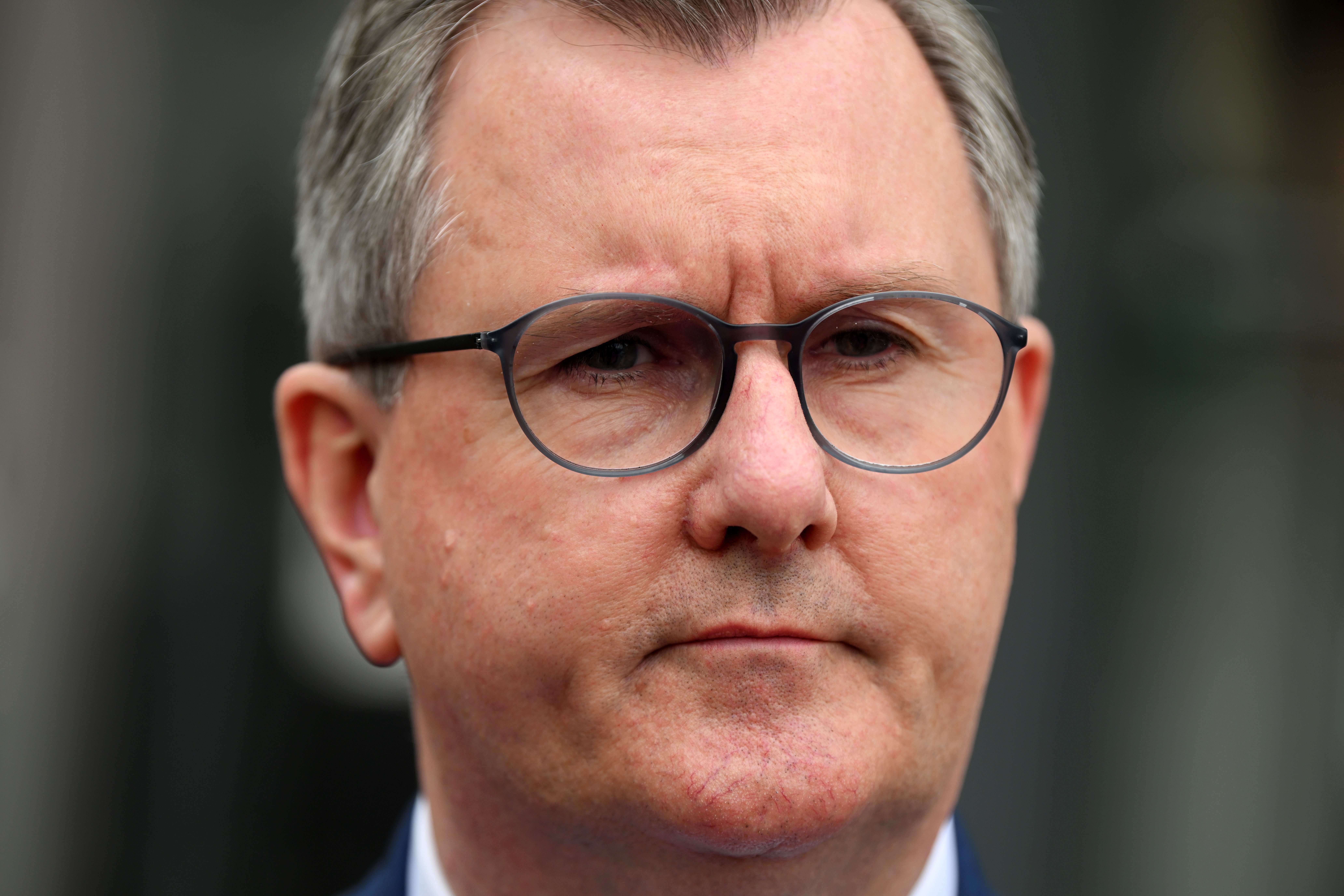The DUP must keep Sir Jeffrey Donaldson’s policy of sharing power
Editorial: Northern Ireland’s devolved government was only restored last month: it must continue

We cannot comment on the reason for Sir Jeffrey Donaldson’s resignation as leader of the Democratic Unionist Party, except to say that the due process of law must be respected.
But his sudden departure from the leadership of the largest unionist party in Northern Ireland does have implications for the government there. It was only last month that the devolved administration was restored in Belfast after a two-year suspension. This was a welcome step forward after difficult negotiations not just between Sir Jeffrey and Rishi Sunak, the prime minister, but between different strands of opinion within the DUP.
That the DUP will now face a leadership election, in which there is likely to be a candidate opposed to the restoration of devolved government, puts the newly functioning administration at risk.
This would be a bad outcome for Northern Ireland. The remarkable pairing of Michelle O’Neill, the Sinn Fein first minister, and Emma Little-Pengelly, the DUP deputy first minister, has been one of the high points of Northern Irish politics, which sometimes seems to consist only of occasional peaks in between long troughs.
Sir Jeffrey’s achievement in restoring power-sharing seemed to follow what had by now become a familiar pattern. The day of Sir Jeffrey’s resignation is the anniversary of the day the pattern was set in 1998, when the Belfast Agreement was struck on Good Friday. That was when David Trimble, a former hardline unionist, took a risk for peace. A deal was done with former terrorists on the other side, who did likewise, aided by Tony Blair, a prime minister attentive to detail and attuned to the emotional price of compromise.
At the time, Jeffrey Donaldson was one of Trimble’s newest MPs, who made a name for himself by walking out of the delegation on Good Friday 1998, protesting that his leader had conceded too much.
The pattern of former hardline unionists folding towards the centre had been established, however. The most historic of these was Ian Paisley Sr, nine years later, who revived the institutions of the Belfast Agreement by reaching agreement with Sinn Fein, becoming first minister himself and sharing power with Martin McGuinness as deputy first minister.
By then Mr Donaldson had defected from Trimble’s Ulster Unionist Party to Paisley’s DUP and after the UK voted to leave the EU (the DUP supported Brexit but the voters of Northern Ireland opposed it by 55 per cent), he put himself at the head of the DUP opposition to a “border in the Irish Sea” between Northern Ireland and the rest of the UK.
When he, now Sir Jeffrey, stood for the leadership of the DUP in 2021, it was on a platform of opposing the Northern Ireland protocol – the deal negotiated by Boris Johnson to keep an open border on the island of Ireland between the UK and the EU. This involved a border in the Irish Sea, and the DUP’s opposition to it was the main issue that brought down devolved government in Belfast in 2022.
Sir Jeffrey was not appeased by Mr Sunak’s Windsor Framework, negotiated with the EU and attended by much fanfare a year ago, which remedied the worst of the practical problems generated by Mr Johnson’s slapdash deal.
But Sir Jeffrey finally completed the journey from hardline unionist to risk-taker for peace in January, when Mr Sunak brought new legislation to parliament.
Now it falls to a new Sisyphus to persuade the DUP to stick with the institutions of power-sharing that are in the interests not just of the unionist community but of all the people of Northern Ireland. We must hope that he or she succeeds.



Join our commenting forum
Join thought-provoking conversations, follow other Independent readers and see their replies
Comments